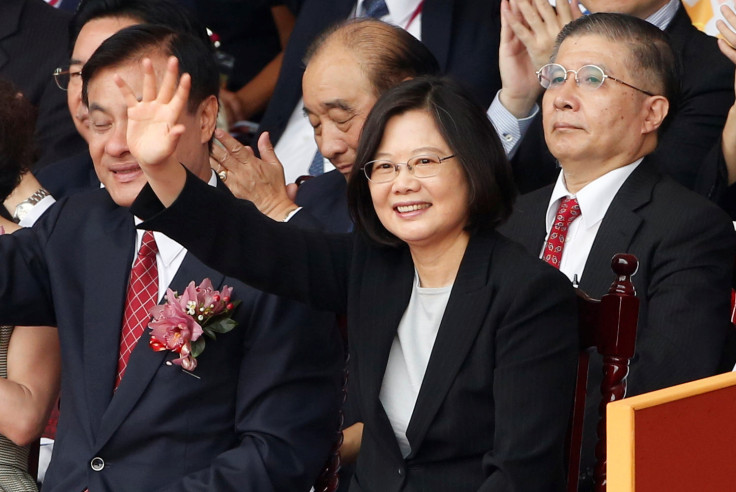President Tsai Ing-wen says Taiwan will not bow to China's pressure, asks Beijing to face the reality
The president said China should recognize her government's existence.

Tsai Ing-wen, the first female president of Taiwan, said on Monday (10 October) that her country would not bow to China's pressure. She has also asked Beijing to accept the reality and engage with it in talks.
Speaking in a National Day celebrations address at the Presidential Office Building in central Taipei, Ing-wen said that the relation between the island nation and China in past months had been rough.
"But we will not bow to pressure, and we will of course not revert to the old path of confrontation," she was quoted as saying by AP.
Beijing should "face up to the reality" of the Taiwanese government's existence and of the island's democracy, President said, and added that the two countries should "sit down and talk as soon as possible."
Beijing is believed to have reservations regarding Tsai and her party, even after she had made it clear that she wants peace with China.
Beijing claims Taipei is its own territory. The largest economy in Asia also says if necessary it would not hesitate to use force.
China cut off communication mechanisms with Taiwan in June as the ruling Democratic Progressive Party declined to recognise the "one-China" policy. Under the cross-strait talks in 1992, it was agreed between China and Taiwan that there is only one China, however they are free to work differently.
Liu Yi-jiun, a professor of public affairs professor at Taiwan's Fo Guang University, said, "Tsai's unwillingness to do so, and danger isolating her party's supporters, clashes with her hopes for renewed talks between the sides that Beijing cut off shortly after her May inauguration."
"So far I just don't see anything happening at this time. (Tsai) really wants her counterparts to sit down and find some solution. That's something positive. But I don't think these kinds of words will turn the situation around," Yi-jiun added.
Meanwhile, the president also talked about the plans to strengthen the country's high-tech, export-dependent economy and advance opportunities for young people.
This year's formations of troops outside the presidential office at Monday's ceremony were lighter than in 2015 when large amounts of military hardware rolled past the office building in a gesture of strength to China.
© Copyright IBTimes 2025. All rights reserved.





















